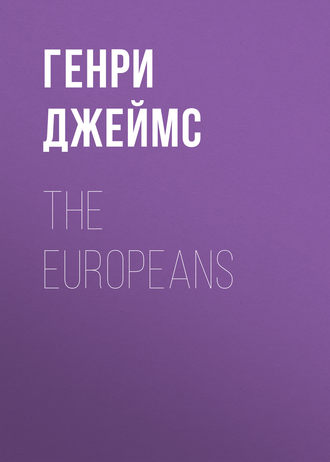
Генри Джеймс
The Europeans
“For myself, I wish you might have stayed,” he said. “But not for your own sake.”
“I don’t make so many differences,” said the Baroness. “I am simply sorry to be going.”
“That’s a much deeper difference than mine,” Acton declared; “for you mean you are simply glad!”
Felix parted with her on the deck of the ship. “We shall often meet over there,” he said.
“I don’t know,” she answered. “Europe seems to me much larger than America.”
Mr. Brand, of course, in the days that immediately followed, was not the only impatient spirit; but it may be said that of all the young spirits interested in the event none rose more eagerly to the level of the occasion. Gertrude left her father’s house with Felix Young; they were imperturbably happy and they went far away. Clifford and his young wife sought their felicity in a narrower circle, and the latter’s influence upon her husband was such as to justify, strikingly, that theory of the elevating effect of easy intercourse with clever women which Felix had propounded to Mr. Wentworth. Gertrude was for a good while a distant figure, but she came back when Charlotte married Mr. Brand. She was present at the wedding feast, where Felix’s gaiety confessed to no change. Then she disappeared, and the echo of a gaiety of her own, mingled with that of her husband, often came back to the home of her earlier years. Mr. Wentworth at last found himself listening for it; and Robert Acton, after his mother’s death, married a particularly nice young girl.







